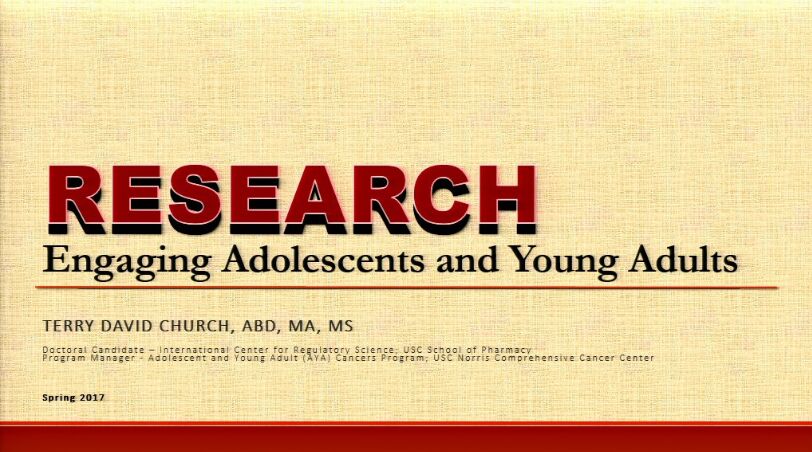- Adolescents:
- Defining adolescents and their characteristics: conflict resolution, developing identity, psychological changes
- Less than 1% of total adolescents involved in clinical trials.
- Regulatory timeline: development of regulations to safeguard rights of adolescents and children.
- Ethical Principles from Belmont Report for considering adolescent population:
- Respect for Autonomy
- Beneficence
- Non-Maleficence
- Justice
- Assents, Consents and Permission:
- Assent:
- An ongoing conversation with the child and the research team. Children from 7-17 years are assented.
- Parental permission:
- Required unless waived by IRB
- Cases where parent permission is waived: minimal risk research, impossible parental permission cases, when it does not adversely affect subject’s welfare or other appropriate situations)
- Regulatory requirements are based on type of study, risk to adolescent and benefit of the study
- Consents are based upon status of minor: emancipated, married minors, minors working in armed forces, living apart from parents, pregnant or incarcerated minors.
- Exceptions: Minors considered as adults when seeking treatments for drug abuse, alcoholism, venereal disease, mental or emotional disorder, contraception other than sterilization, pregnancy, injury or treatment for alleged rape or sexual offense.
- Assent:
- Increasing outreach: Social Media usage among Adolescents:
- Preferred means of communication: Texting, Facebook, Twitter, smart phone ownership can be used to harness adolescents.
- FDA guidelines for use of social media in context.
Regulatory Science Symposium: Special Populations Session 4: Research - Engaging Adolescents and Young Adults (2017)
In this session, we will discuss the importance and concerns of dealing with adolescents in clinical trials.
Course Syllabus/Topics
Acknowledgement
Accompanying text created by Vaibhavi Chokshi | Regulatory Science Graduate Student Worker | vmchoksh@usc.edu

